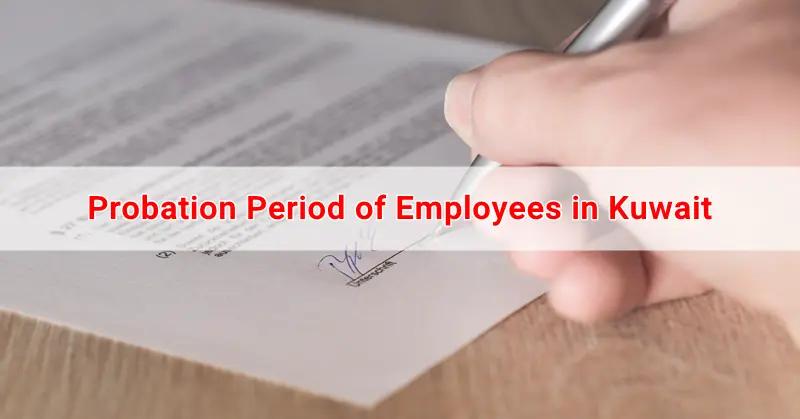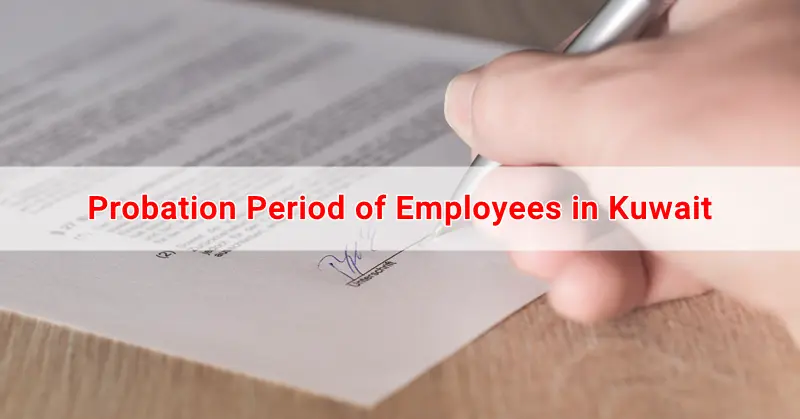Thriving in your First 100 Days: 7 Essential Insights on Kuwait’s Employee Probation Period

If you’re planning to work in Kuwait, especially as a first-time Overseas Filipino Worker (OFW), it’s essential to familiarize yourself with Kuwait’s Labour Law and the provisions that apply to your specific situation and employment status. Knowing these laws is crucial for protecting yourself against potential issues and ensuring your rights as an employee are upheld. No matter your position or status, being aware of your rights is key to safeguarding your well-being.
For those who have previously worked in the Philippines, you’ll notice both similarities and significant differences between the labor regulations back home and those in Kuwait. Understanding these differences is vital for a smooth and positive work experience while in the Middle East.
In this post, we’ll provide an in-depth explanation of the probation period in Kuwait, often referred to as the “trial period,” along with answers to some frequently asked questions related to working during this time.
What is the Probation Period in Kuwait?
Under Article 32 of Kuwait’s Labour Law, an employee can be placed on a trial period for a maximum of 100 days. This period must be clearly stated in the employment contract. The probation period serves as a phase during which the employer evaluates the employee’s skills, performance, and overall suitability for the role. Importantly, an employer can only implement this trial period once for each employee.
During this time, the employment contract can be terminated by either party without prior notice. If the employer decides to end the contract during this period, the employee is entitled to receive an end-of-service benefit, which is calculated based on the duration of their employment.
Am I Entitled to Overtime Pay During the Probation Period?
Yes, employees in Kuwait are entitled to overtime pay even during the initial employment phase. According to Kuwait’s Labour Law, all employees must receive overtime pay if they are required to work beyond the standard eight hours per day, provided this is agreed upon in writing. The overtime pay rate is set at an additional 25% of the employee’s basic hourly wage.
Furthermore, there are limits to the amount of overtime an employee can be asked to work. Employees cannot be required to work more than two hours of overtime per day, 180 hours per year, three days a week, or 90 days per year. These restrictions are in place to protect workers from excessive workloads and ensure a fair work-life balance.
Important Considerations for Employment Contracts
For an employment contract to be valid and binding in Kuwait, it must adhere to the format prescribed by Kuwait’s Labour Laws. This compliance ensures that the contract is legally enforceable and that both the employer and employee are protected under the law.
Understanding the specific requirements and protections offered under Kuwait’s Labour Law is critical for any employee, especially those new to the country. Being well-informed will help you navigate the initial employment period and beyond with confidence, knowing that your rights are safeguarded.

Final Thoughts
Living and working in Kuwait can be a rewarding experience, but it’s important to be well-prepared and knowledgeable about your rights as an employee. By understanding Kuwait’s Labour Law, particularly regarding the probation period, you can ensure fair treatment and a positive work experience.
Disclaimer: The information provided in this article is intended for informational purposes only. For more detailed and official information regarding labor provisions under Kuwait’s Labour Law, please refer to the Ministry of Social Affairs and Labour (MoSAL) official website.
To read more content like this: Click Here!
To read more about the Probation Policies: Click Here






